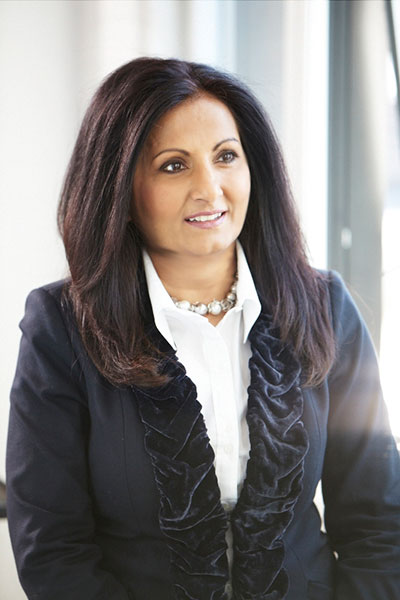 *Exclusive Interview conducted by Marie-Christine Tayah
*Exclusive Interview conducted by Marie-Christine Tayah
Editor In Chief
Q1: The fear of failure is a significant emotional stumbling block for many people causing them to not pursue their dreams, procrastinate, or give up at the first setback. What do you think about failing?
We speak of failure and success as binaries. The idea that one either fails or succeeds comes from a limited mentality and has served no good purpose.We should think of failure as milestones and eventually, we will appreciate them for what they are. All those who have achieved great success have overcome significant challenges in their lives. I am convinced that failures as milestones are potent motivators, allowing us an opportunity to be reflective. When you fail, you are able to tweak your strategy on your way towards success. Failures are not mistakes. I have failed a few times and in many endeavours – I have never let failure hold me back from trying again, and I have never let it cloud my own judgment about my abilities.
Q2. What are the largest stumbling blocks to achieving gender equality in business?
Gender discrimination is still prevalent in the business world and serves as a hurdle towards economic empowerment for women. One of the main obstacles, in my opinion, is that women disproportionately lack access to the tools they need for success, notably finances, education, and a sense of self-confidence. Women are denied loans and financial support in many countries around the world for their entrepreneurial endeavours; often loans can only be taken out by husbands or a male relative, which not only discourages entering the business or start-up field, it promotes patriarchal values.
Women are also still denied the equal opportunity to a quality education from an early age. This does not allow them to develop skills they need for business success and often perpetuates dated notions of female domesticity.
Finally, there is a large confidence gap between men and women in business, and this gap exists in all countries, even developed ones such as Canada. If women are discouraged from entering certain fields, or if they lack education, or if they are facing constant assaults to their dignity and rights, their confidence levels plummet and they become discouraged.
There is a real danger that some societies will socially, politically, and economically regress into the dark ages.
Q3. Could you elaborate more on the HeForShe campaign and the gender inequality issue?
The HeForShe campaign is a global solidarity movement. It is an important and exciting campaign because it provides men and boys with a space and a platform to join a global conversation about gender equality and gender based discrimination.
It calls upon men and boys to speak up against persisting inequalities that are faced by women and girls around the world. The campaign will create a visible international coalition of males to increase awareness and support for human rights and equality for women, and aims to mobilize one billion men and boys by July 2015.
Q4. Between you and yourself, what do you consider your mission to be?
Throughout my career as a businesswoman and entrepreneur, I have noticed that gender discrimination is globally prevalent. Patriarchal societies still dominate much of the world and this is disconcerting. Women continue to be denied rights and resources. If civil societies across the world are going to develop strength and resilience, they will do so only through women who are empowered. My mission is to ensure that this happens.
Q5. What do you dream of –to happen during the 21st century? And do you think dreams can come true?
We have come a long way. Governments, institutions, individuals – everyone has played an imperative role in ensuring that our societies grow. The vision is of course, gender equality and all the opportunities that it affords. While the Millennium Development Goal of universal primary education for young women was achieved in several countries, there is still a lot of work to be done. Patriarchy has cast a long shadow and our approach has to be generational; it has to be long-term; it has to be sustainable. It is only through education that women will be accorded the same opportunities as men in a highly competitive world – and this includes educating men of the indispensable role that women play in development of healthy societies.
As for dreams coming true, we need not look far back in history. Martin Luther King Jr.’s words continue to inspire action. The answer unequivocally is yes.
Q6. What is your definition of success?
I have taken it upon myself, along with countless men and women that come from various countries and from different walks of life to advocate for gender equality. Women have made great socio-political and economic strides in the past several decades. This in itself is success. But let us go further. Let us take it upon ourselves to ensure that the communities in which we live become free from the chains of gender-biases. When we all become feminists, we will have succeeded. The word feminist has become unpopular. Women don’t want to identify as feminists, and men even less so. People think that feminism is about man-hating, or bra-burning, or some radical idea that doesn’t affect them and has nothing to do with their world… and that, quite simply, is untrue.
Why has the word become so isolating? I would like to set the record straight.
By definition, feminism is quite simply, the theory of social, economic and political equality between men and women.So to be a feminist means that you believe a woman should have the same social rights as a man.
It means that a woman should have the same economic rights as a man.
It means that a woman should have the same political and legal rights as a man.
To be a feminist, means that you believe in gender equality.
No one can argue with that
